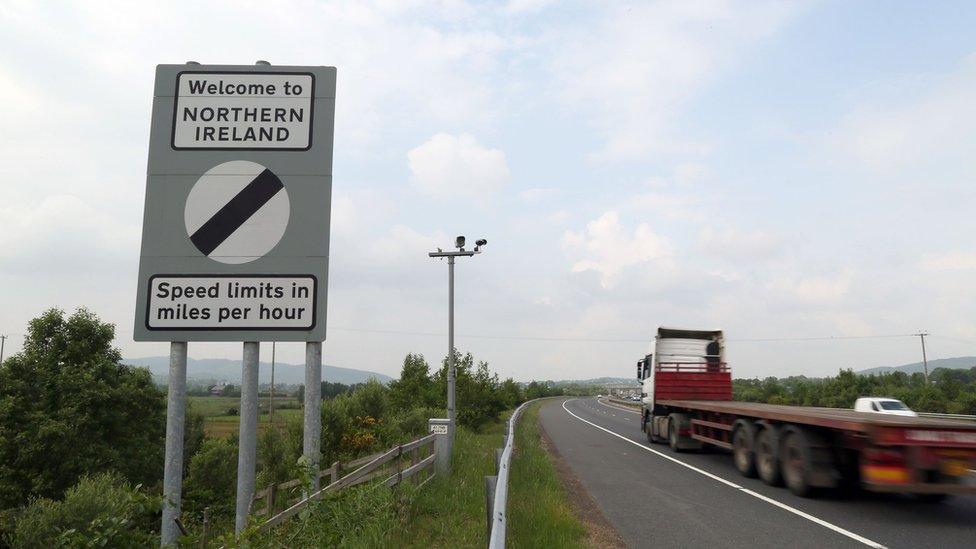Brexit: The return of the 'max fac' solution to the Irish border
- Published

I don't blame you if you feel like a lot of the conversations around Brexit are a bit like a broken record.
That's not just because, as we've talked about lots of times here, the core conundrums in all of this are the same as they were the morning after the referendum.
But overtly now, one of the solutions that's being talked about again in Westminster is being resuscitated, arguably because it was a political dispute that was ignored, rather than settled before.
The so-called "Malthouse compromise" is described as "basically max fac" - a reheat of one of the options the government considered for many months as one of the ways to handle the Irish border after Brexit.
And "max fac" was always the option that was favoured by Brexiteers, in cabinet as well as on the backbenches.
What seems like a political lifetime ago, the Brexit department was pushing a solution much like Malthouse, but Number 10 kept coming back with a different proposal - the future customs arrangement.
The Brexit department kept trying to kill that idea off, believing that "max fac" was a better, more Brexit-friendly solution.
One source said: "The papers kept coming back with it restored, it was Number 10".

What is the 'max-fac' option?
'Maximum facilitation' - an option favoured by Brexiteers who want a complete break with the EU customs regime and would rely instead on technology to minimise border checks.
Declaration and clearance procedures would take place in advance, away from the border, and surveillance would be intelligence-led, rather than old-fashioned random searches.
Critics say it would not solve the Irish border question as there would still need to be tariff checks.

In that era, Brexit decisions were meant to be thrashed out at the cabinet sub committee - the inner group carefully constructed of Leavers and Remainers alike.
As we reported at the time, after months of discussions and arguments, that committee preferred to pursue "max fac", although there was not an actual vote.
Crucially, at that moment, ministers who weren't fully paid-up Brexiteers, like Sajid Javid and Gavin Wiliamson, came down in favour of that arrangement, rather than swinging in behind the PM.
In the end though, Number 10 pressed on with proposals preferred by some other ministers, and seen as more workable around Whitehall.
Ministers like Boris Johnson and David Davis were furious, as they believed the argument had been won.
One source closely involved at the time said: "The difficulty has never been a technical one… the system just wouldn't do the work, and kept resisting."
They were of course, closely fought arguments - customs policy after Brexit has for a long time been a proxy of the long, bitter and deep conflict in the Tory party over the kind of relationship the country should have with Europe.
But the politics were not settled in 2017, were not settled in 2018 and are not settled now - Brexiteers believe with the PM's own proposal in so much trouble, now their idea lives to fight another day.
Max fac by another name has returned, but the conflict is a problem that just won't go away.
